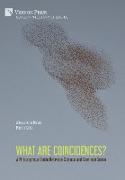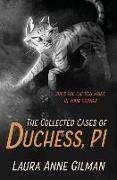What are Coincidences? A Philosophical Guide Between Science and Common Sense
BücherAngebote / Angebote:
It is a common opinion that chance events cannot be understood in causal terms. Conversely, according to a causal view of chance, intersections between independent causal chains originate accidental events, called "coincidences". Firstly, this book explores this causal conception of chance and tries to shed new light on it. Such a view has been defended by authors like Antoine Augustine Cournot and Jacques Monod. Second, a relevant alternative is provided by those accounts that, instead of acknowledging an intersection among causal lines, claim to track coincidences back to some common cause. Third, starting from Herbert Hart and Anthony Honoré's view of coincidences (Causation in the Law. Clarendon Press, Oxford, 1959). This book provides a more detailed account of coincidences, according to which coincidental events are hybrids constituted by ontic (physical) components, which is the intersection between independent causal chains, plus epistemic aspects, including but not limited to, access to information, expectations, relevance, significance, desires, which in turn are psychological aspects.
The main target of the present work is to show that the epistemic aspects of coincidences are, together with the independence between the intersecting causal chains, a constitutive part of coincidental phenomena. This book aims to introduce and discuss recent work in psychology concerning one's judgment about coincidences, this data offers further materials and reasons to reflect upon our understanding of coincidences and to refine our hybrid conception.
Folgt in ca. 15 Arbeitstagen




